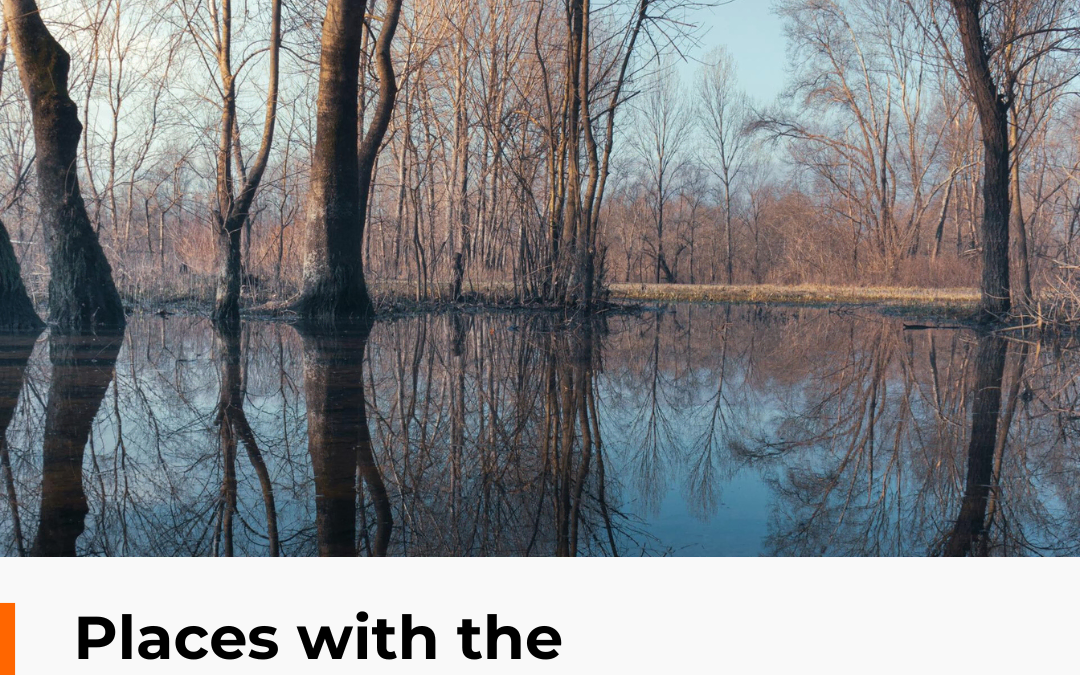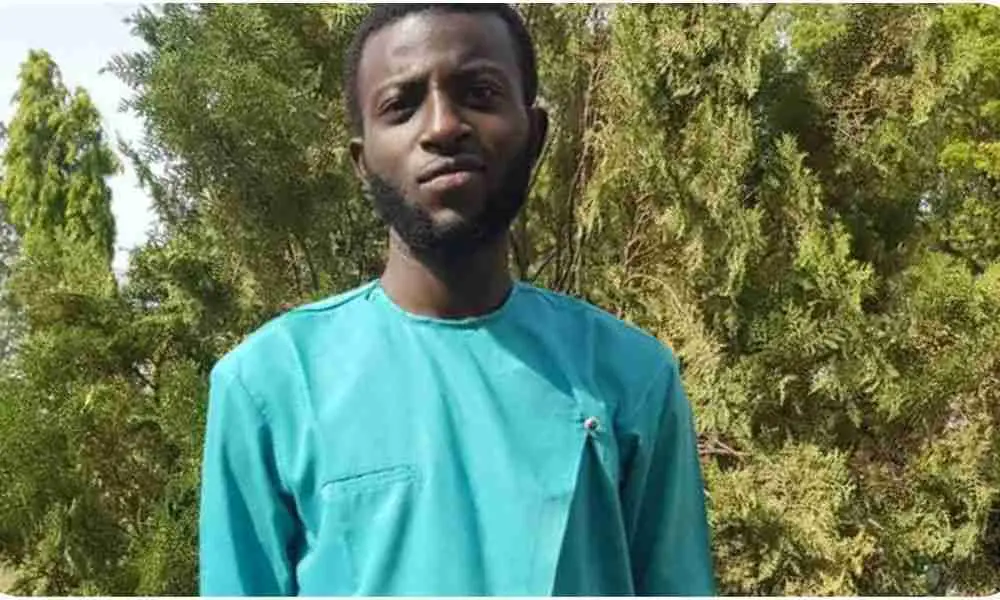
by Abdulganiyu Ibrahim | Jun 17, 2024 | City Guide
Ive made a list of places with the lowest temperature in Nigeria. These places get extremely cold temperatures especially during the harmattan season, which are mostly the northern part of Nigeria. This article incorporates the coldest places in northern Nigeria during the harmattan season in no particular order.
1. Jos, Plateau State
If you are blindfolded and lead into Jos especially during the harmattan period, you would argue and mistake the area for some European countries. This is as a result of the coldness of the weather there is much like the winter.
Located in the North Central Zone of the six geo political Zone of the country and surrounded with rocks and stones, Plateau State stands out to be among the coldest state in Northern Nigeria with the temperature as low as 7°c. This has however made the place a favourite holiday location for both tourists and expatriates based in Nigeria right from colonial times till this present day- earning it “the home of Peace and Tourism”.
2. Kano, Kano State
Although the weather in Kano State is exceptionally hot during the year, capriciously changes from November down through December, which is the Harmattan season- to the early year.
With an average low temperature ranging from 11 to 15^c, the state stands out to be one of the coldest places, not only in northern Nigeria but the country at large.
3. Wammako, Sokoto State
With a temperature of about 19°c, Sokoto State happens to be one of the most affected parts of the northern region by cold – especially in Wammako Local government. The State stands out close to the onset of the Harmattan wind, exposing it to severe cold during the period – mostly November – December to the following year.
Even though the temperature is usually hot in the afternoon during the dry season, it is always cold and windy in the morning and at night, to the point – if you step out of your room at this time, you might be swept off your balance with the intensity of the wind blowing alongside the cold.
4. Gembu, Taraba State
Despite the fact that Jos is a frigid town, Gembu on the Mambilla plateau is far colder. This town is located in Taraba state’s Sarduana LGA and has a height of 4,423 feet, making it the country’s highest. In December and January, temperatures in Gembu can drop to as low as 1°c due to the high elevation around the Mambilla plateau axis.
Like every other state in Nigeria, Taraba State is a very comfortable place during the wet season and warm during the dry season.
5. Zaria, Kaduna State
Coming to Kaduna (Zaria to be precise) from Kwara State for the first time around the early month of January, I started experiencing coldness at its zenith around 6: 00 in the noon. On reaching Zaria which was my destination – at around 8: 20 thereabout, the cardigan I came with couldn’t withstand the level of coldness anymore. This is to show how extremely cold the state was then and even today.
Early in the morning, the temperature is always around 19°c. During this time, it is always a burden to perform an ablution, talk more about bathing.
Furthermore, It shouldn’t be much of a surprise to you while you are under the scorchy sun and yet be threatened with cold.
6. Kubwa, Abuja
Taking into consideration the coldest places in Northern Nigeria, Adamawa state is not left out – importantly, a place like Mubi in the said state. Adamawa is an elevated land area and has some significant rocks – with this, the place is also prone to coldness.
The weather temperature is extremely cold during harmattan with an average temperature ranging from 15. 2°c, making it one of the coldest places in Adamawa state.
7. Funtua, Katsina State
The highest temperature ever recorded in Funtua in Katsina state was 39 degrees Celsius in December. At this time of year, the state temperature can drop to as low as 7 degrees Celsius.
The harmattan period can result in foggy conditions in the atmosphere.
8. Toro, Bauchi State
With a low temperature of about 20°c in the day, Toro in Bauchi State is also considered to be one of the coldest states in Northern Nigeria, while it is believed that the temperature is quite lower than this in the morning and at night.
Conclusion
Since cold temperatures can be good for your skin’s health due to the fact that it constrains blood vessels in the skin, which makes the blood vessels less likely to have redness and swelling, why not visit one of the places listed above and have a first-hand experience on how lovely it feels to experience cold at its zenith here in Nigeria?
Don’t forget to come in these clothes everyone should have this harmattan.

by Abdulganiyu Ibrahim | Jun 17, 2024 | City Guide
A few days after an emotionally challenging period, I decided to embark on a trip to Kaduna State to clear my mind. I arrived in Kaduna from Zaria around 12:00 pm on December 11, 2021, welcomed warmly by my brother and his family. Shortly after the initial excitement of my arrival, I retreated to my usual guest room to rest.
While I was lost in thought, my brother interrupted and suggested an adventure to Kajuru Castle, a place he believed would lift my spirits. He described the castle’s enchanting architecture, climate, and the unique attractions, including the crocodile guarding the gates and the majestic stainless steel pool. Intrigued, I agreed to join them.
After freshening up, I joined my brother’s family in the living room. Before we left, my brother’s wife offered me some food, which I gladly accepted. I quickly finished a plate of pasta, and soon we were on our way to the castle, an hour’s drive from Kaduna.
Upon arrival, we paid the entrance fee of N10,000 for a one-hour tour. A guide, referred to as the Castle Ghost, greeted us and began the tour, sharing fascinating details about Kajuru Castle. Built in 1989 by a German expatriate, the castle sits atop a hill in Kajuru, approximately 45 kilometers from Kaduna. Styled in a medieval European manner, the castle attracts numerous tourists, earning it the title of the best tourist attraction in Nigeria.
However, despite its charm and historical significance, Kajuru Castle has not seen any significant rehabilitation efforts by the state. The once grand structure now shows signs of neglect, with parts of the building in need of repair and maintenance. The lack of state intervention has left the castle relying heavily on private efforts to maintain its allure and functionality.
The castle features four dungeon rooms and a large master bedroom, which boasts the biggest bathtub in Nigeria. Its unique elements include knight armor with a sword, bookshelves, a bow and arrow, a large chair, and a small center table, giving it a Camelot-like ambiance reminiscent of the movie Merlin.
Curious about its capacity, I asked the Castle Ghost how many people it could accommodate. He explained that while the castle can host up to 150 people for events, its limited number of rooms restrict overnight stays to about ten guests. Despite this, the castle is popular for group vacations, honeymoons, pool parties, and other celebrations. It even includes a kitchen, sauna, and all the amenities needed for an overnight or weekend stay.
My brother, excited by the idea, inquired about the cost of spending a night at the castle. The Castle Ghost informed us that a night for the five of us would cost N150,000, while a weekend would be N270,000. Although my brother abandoned the plan due to the high cost, the Castle Ghost suggested we consider it for a future visit, noting that we would have to arrange our own meals.
As our tour concluded, I felt a sense of joy and excitement wash over me. The castle’s beauty and history had provided a much-needed distraction from my recent troubles. Visiting Kajuru Castle was an unforgettable experience, and for a moment, I forgot all about my previous heartache.

by Abdulganiyu Ibrahim | Sep 24, 2023 | Kannywood
Adam Abdullahi Zango, born on October 11, 1985, in Zango local government in Kaduna state, is a Nigerian singer, songwriter, and highly acclaimed actor. Hailing from the family of Mallam Abdullahi and Hajiya Yelwa Abdullahi, Zango’s journey to stardom is a tale of resilience and talent.
Biography
Early Life and Family
Adam Abdullahi Zango was born in Zango local government in Kaduna state. His father, Mallam Abdullahi, and his mother, Hajiya Yelwa Abdullahi, worked as a blacksmith. During his childhood, Adam experienced tribal clashes in his hometown, prompting him to move to Plateau State in 1992, where he completed his primary education. Due to poverty, he could not continue his studies at that time. Interestingly, during his childhood, he earned the nickname “Usher” due to his skill as a dancer.
Career Beginnings and Breakthrough
Adam A Zango returned to Kano and found employment with a music and dance company. He made his acting debut in the film “Sirfani,” claiming to have directed it himself. Over the course of 16 years, he has appeared in more than 100 films, solidifying his position as one of the most prolific actors in the industry.
Career Highlights
Significant Roles and Films
Adam Zango has showcased his talent in notable productions such as “Ramlat,” “Dan Kuka,” “Skelebe,” and “Gambara,” among others.
Major Achievements and Awards
In recent years, Adam A Zango has garnered numerous awards and recognition for his exceptional talent and contributions. Some of his notable awards include:
- Best Film for “Gwaska” in 2015
- Kannywood Best Actor in 2012
- Africa Movie Best Actor in 2014
- City People Magazine Best Popular Actor in 2015
He has also received awards from various organizations, such as the Abalak Association in the Republic of Niger, Wazobia Angels Hope Foundation, and a Lagos-based Arewa Films Production company, Alaba.
Personal Life
Educational Background
Adam Zango’s educational background includes primary school from 1989 to 1995 and secondary school from 1996 to 2001.
Philanthropy
Adam A. Zango sponsored 101 students to study at Professor Ango Abdullahi International School in Zaria, generously paying a total of N46.75m for a three-year scholarship. In recognition of his philanthropy, Adam Zango was honored with the titles “National Philanthropist of the Year” and “Viewers’ Choice of the Year” after settling the school fees of over a hundred students at Ango Abdullahi International School in Zaria, Kaduna state.
Net Worth
Adam A. Zango’s successful career in acting and music, combined with his numerous awards and endorsements, have contributed to a significant net worth. The net worth of Adam A. Zango is N200 million Naira. His extensive work and philanthropic activities suggest a substantial financial standing.
Philanthropy and Interests
Besides his career in entertainment, Adam Zango is known for his charitable activities, particularly in supporting education. His personal interests include music and dance, which have been integral parts of his journey from a young age.
Conclusion
Adam Zango’s journey in the Nigerian entertainment industry has earned him a prominent place as an outstanding actor and musician. His relentless pursuit of success, combined with his humility and charitable endeavors, continues to inspire others in the industry and beyond. His story reminds us that with passion, dedication, and a heart inclined towards making a difference, one can thrive in any industry.

by Abdulganiyu Ibrahim | Mar 20, 2022 | The Gist
Owolabi Sulaiman Abimbola is an indigene of Irepodun Local Government, Kwara State, but a resident of Alimosho in Lagos State. From a family of 11, he is the 6th child of his parents. Growing up, he attended both his Primary and Secondary education in Lagos State. After that, he had his National Diploma in Kwara State Polytechnic, and also, a Bachelor of Education in Ahmadu Bello University Zaria.
With a 4.54 CGPA, Owolabi Sulaiman Abimbola emerged not only the overall best graduating student in the department of Agriculture Education of Ahmadu Bello University but also the first first-class student in the history of the Department in the same fountain of learning (ABU). In this interview by Abdulganiyu Ibraheem, the Agric Educationist graduate talks about his journey in school, the steps he took to achieve this feat, among others.
Was Agriculture Education, your first choice before you entered the university?
Nope, Agriculture Education wasn’t my first choice, Agriculture was – Animal Science to be precise, so, I had to go for a change of course. So that was how I ended up in Agriculture Education. But funny enough, Agriculture Education is just some inches away from agriculture because it is still a related course to what I wanted to study from the onset. So I can pretty say now that it was my choice.
Would you say you knew you were going to emerge as one of the best graduating students when you started?
I wouldn’t say I knew it was going to happen because right from the onset, I started on a stellar note putting in my best, but unfortunately, in the middle of the road, I dropped due to some certain unforeseen circumstances. But to God be the glory, I was able to bounce back which is what matters the most. But being the best graduating student in my set and my department, I never knew it was going to happen until the final day. I just kept on pushing hard to achieve what I hoped to achieve. ‘Alhamdulillah’, I achieved it by the grace of Allah.
How did you feel when you realized the possibility of you emerging as the first-class class student from your department, and what was your reaction when it was announced?
I felt glad. Although it was a mixed feeling because I wanted someone else to also be part of this, fortunately enough, I was the only one in my section, which is Agriculture Education. I was the only one who emerged. But the feeling was not so good. So if it wasn’t just me, it would have been making more sense but I thank God I was able to achieve this.
As long as Agriculture Education is concerned, you are the best student the Department has ever produced. What would you say were the strategies and extra steps you took that made this happen?
Wow! Well, one thing I believed in was prayer. That was always number one on my list; because prayer opens doors that you don’t even expect to open, so prayer was the first thing foremost. And then consistency was one other thing because I was consistently targeting something (CGPA). I had a goal I set for myself. And each semester, I always have it in my mind that ‘This is what I want to achieve this semester’. And that was what I work towards. So I was always consistent in achieving my goal. So consistency was another thing. Then the third thing is I don’t joke with class hours. If I were to calculate the number of classes I missed from the first year till the last, I don’t think it was up to ten percent. I always attended my classes; I had perfect attendance on most of my courses. And also, I was always very attentive while in class.
And my reading strategies were quite different from the way you will have some people read. Although in my school here, it is very common to see a lot of people read at night, which was also the method I developed too. I made sure I don’t read too hard but read smart during that time in the night and also not for too long. And during the day, I revise what I had read the night.
I must say those were my reading strategies and they worked for me.
What was your study pattern like when you were still in school?
My study pattern was: to attend classes, rest, go through what we did on that day. And that had always been a constant thing. And also, during Mid-Semester Break, was when I normally start my exam preparation; this by intensifying my reading energy to about 5 hours a day.
What were some of the challenges you faced while in school?
Well, at first adapting to the environment was a little bit challenging, but subsequently, I was able to settle in; to the point that I hardly travel when I see myself meshed with the environment. To the point, my friends knew me for this and would even call me ‘Dan Zaria’.
Then the other challenge was times when things were not the way you would want them to be, but at the end of the day, you still have to push through. Those were just the challenges faced.
Did you maintain your CGPA from the first year in ABU, and what motivated you to do exceptionally well?
Well, starting with a 4.65 was high but not too high because I had someone with a higher CGPA. Seeing this, I said to myself that if someone could achieve something like this, then I could also achieve that as well; that was all I kept telling myself then I kept on working towards it. But unfortunately, along the way, I dropped so badly in my second semester 200l; I dropped from a First-Class student into a Second-Class Upper student, but that didn’t stop me from pushing hard to achieve the goal that I set for myself. And glory is to God, I was able to finish with a First-Class, even though it wasn’t as high as what I started with from the beginning.
How were you able to balance social life with school work or did you forfeit some for school?
Well, I don’t joke with play, and also being a strong fan of sporting activities, on weekends, I always visit the school gymnasium. Then, I believed that Mondays to Fridays were for academics while Saturdays and Sundays were for life outside academics. I could remember a time when a friend of mine saw me on the field and he was like ‘First-Class too dey play ball’. And that was just me, I didn’t believe in everyday reading, so I took my time to also play and catch some fun.
Did the circle of your friends and family influence your performance to a great length?
Yes, they did because they believed in me and one thing I don’t like is letting people down. Also, right from the onset, the friends I keep kept motivating me that I could achieve it and when the result was out, the way they were very happy about it, also made me happy.
And from the side of my family, I felt it would be a big slap on my face if I let them down because they contributed a lot towards this achievement – from my parents down to my siblings.
How easy was it graduating with a first class?
It was not easy getting there because at a point when I dropped, it took a toll on me and with my family and my friends, it gave me the support I needed and I was able to bounce back.
What is your advice for people who want to achieve great feats academically?
What I will say to those who wish to attain that greatness is believe in yourself; there is no limit to what you can attain. That has always been what I always told myself and I worked towards it. And my prayer was answered, and my efforts were crowned. Once you have a belief that you can do this, and you work very hard towards it, you will achieve it by His grace.

by Abdulganiyu Ibrahim | Mar 20, 2022 | Uncategorized
I’m sure you’ll agree with me that Nigerian parents do an amazing job raising their children. As a result of the funny things Nigerian parents say to their children while raising them, one would say that they are the funniest parents on the planet. When a person utters such funny things, it’s a sign they were brought up by Nigerian parents.
One thing that fascinates me is how they all tell their children the same thing. It’s as if they all went to the same school where they learned what to say to their children at various times. If you think I’m being sarcastic, give a few Nigerian youngsters some of these phrases (the funniest thing Nigerian mothers say to their children) and see if they can’t connect.
Without wasting any time, let’s dive it them, shall we?
Funny Things Nigerian Parents Say
1. “How many times did I call you?”
This is one of the most preposterous questions that always come from my mother when she called my name, mostly three times; for an important conversation. She would be like ‘Ibraheem! Ibraheem!, Ibraheem! How many times did I call you? And as the crook that I was then, I would say ‘sorry I lost count’ (case close). However, as time passed, I got to realize that it might seem funny, but it was more of a strategy used to make sure that your attention is with her hundred percent.
2. “I did not kill my mother. I will not allow you to kill me!”
This is also one of the funniest things I grew up hearing from my mother. Oftentimes when I engage in rough play and she’s been calling on me to stop from the roar of her voice; like she would vomit her intestine out. Then the next thing would be, “I did not kill my mother, so I will not allow you to kill me”.
3. “Does the person that took first have two heads?”
This mostly was from my dad. Funny enough, it wasn’t as if I came last in the class oo. At times, I went home with a third or fourth position, feeling on top of the world. After showing the result sheet to him, expecting a pat on the back, ironically, I would be spatted on the face with; “How come you came fourth, and from your result, you are about twenty in the class, (then the almighty word) does the person that took first has two heads!”. Even though he would later praise and encourage me, I will not escape those words.
4. “Come and eat me”|
The first day that particular word oozed out from my mother’s mouth, I almost fell for it. On a misty morning when I was about five years old, I woke up famished, then I walked to the backyard where she was making the morning meal. However, with a change of face, I said unto her that I was hungry. As if she was expecting that from me, she stretched forward her arm and said, “Come and eat me”. But I should have known that she was only being sarcastic, hence I was so naive to understand. But as funny as it might sound, I moved close to her, held her arm, and was about to tug my teeth onto it when she yanked me a knock on the head.
E don do, I was about 5 years old then.
5. “Put it on my head”
This is another one of the funny things Nigerian parents say to their children. At first, I thought it was only my mother that used that word, but not until one day I was in one of my friend’s house, not long, his father returned from work and instructed my friend to go pack the foodstuff he had in his car. A few minutes later, he returned with some tubers of yam in his hands. Afterward, he asked his father where he should keep them. Where I was, I was already thinking what kind of question that was, until his father responded by saying, “Put it on my head, mehh!”
6. “Sorry for yourself”
Nigerian parents are highly amusing individuals whom we admire. They often suggest that we apologize when we wrong someone, but when you wrong them, and you say sorry, they respond by saying, “Sorry for yourself”.
7. “It is not me you are doing o, you are doing yourself!”
I remember when I was in High School, a few weeks before my external exam, I got myself a girlfriend which was taboo for our parents to know about. Then this particular night, I was having a phone conversation with her, so engrossed in it to the point I was caught off-guard by my father. However, he started yelling at me, reminding me of how unserious I was, that I would be having my external exam in a couple of weeks, and all I thought was left in my life was chasing girls around. Then there came the word; “It is not me you are doing oo, you are doing yourself, but know that if you fail this exam, that is the end for you, as I don’t have another money for another exam”. But unfortunately, I didn’t make my result, twice. So when he registered me for the GCE exam, I knew I didn’t do myself alone.
8. “Shey you want to beat me? Oya beat me na!”
Most times when your parents are beating you and you held on to their cane, they would leave the cane to you and would be like, ‘Shey you want to beat me ni, oya beat me na.’
9. “When I was your age, I was…”
They say, “When I was your age, I used to wake up at 4: 00. When I was your age, I was the best in my set. When I was your age, I did not think about having a girlfriend, all I think of was my studies; I only faced what my father sent me to school to do”. Those were the words of my father. But he will never tell me that he met my mother in his second year in college, my mother would.
Conclusion
A wave of nostalgia swept me back while penning the funny things my parents said to me then, as those have helped in shaping me into a disciplined being, and to a great length reminds me of the child of whom I am, which I believe it’s the same as others that were brought up by typical Nigerian parents.
Those were the little I could remember about the funny things my parents said to me, which is also common among our Nigerian parents. It would be nice you share a few of yours with us in the comment section below.
It may interest you to check out less stressful ways to deal with a difficult family member.





